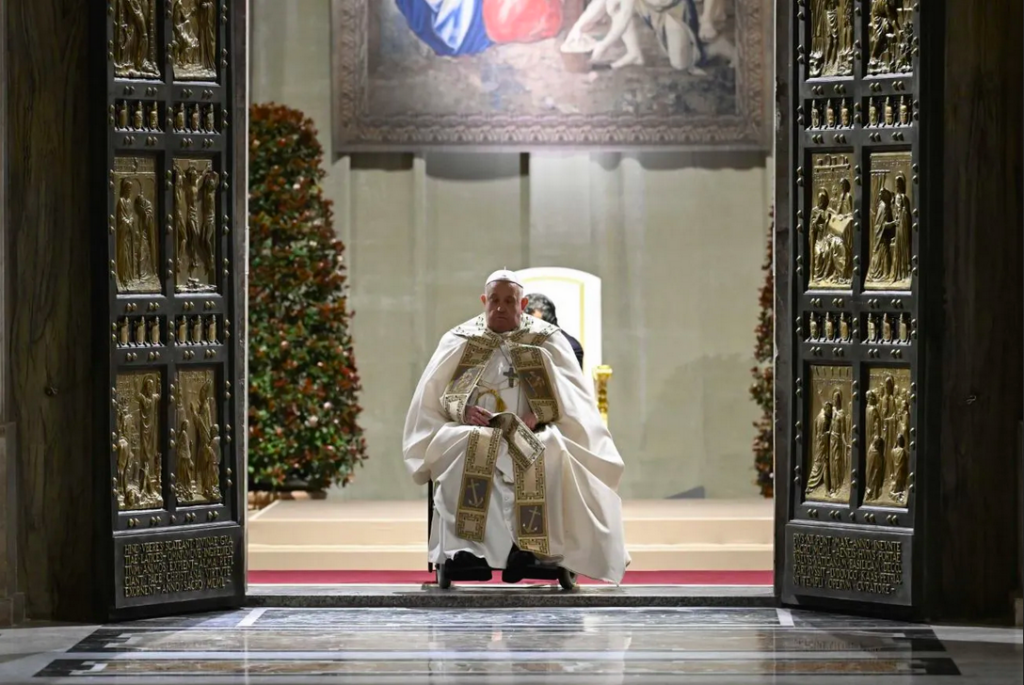
Pope Francis has called on humanity to form a global government to deal with existential threats facing humanity, including “climate change” and economic disparity, during his annual Message of Peace for January 1, 2025.
The existential threats facing the world cannot be dealt with by sovereign nations alone because the problems are systemic and interconnected, the pope claims, and thus must be addressed by a global government.
“Systemic challenges, distinct yet interconnected, are thus created and together cause havoc in our world,” the pontiff states in his message for the 58th World Day of Peace.

BYPASS THE CENSORS
Sign up to get unfiltered news delivered straight to your inbox.
Latest Video
“I think, in particular, of all manner of disparities, the inhuman treatment meted out to migrants, environmental decay, the confusion willfully created by disinformation, the refusal to engage in any form of dialogue and the immense resources spent on the industry of war.”
All of these taken together, he insists, “represent a threat to the existence of humanity as a whole.”
“Each of us must feel in some way responsible for the devastation to which the earth, our common home, has been subjected, beginning with those actions that, albeit only indirectly, fuel the conflicts that presently plague our human family,” the pontiff declared.
“Sporadic acts of philanthropy are not enough,” he urges. “Cultural and structural changes are necessary, so that enduring change may come about.”

For years, Pope Francis has argued that humanity needs a “great reset” to create a new global economy and political authority, especially following the coronavirus pandemic.
“We will be able to regenerate society and not return to so-called ‘normality,’ which is an ailing normality, indeed which was ailing before the pandemic: the pandemic highlighted it!,” he said in 2020, adding that the old normality “was sick with injustice, inequality and environmental degradation.”
In an op-ed for the New York Times that same year, the pope claimed that this “is a moment to dream big, to rethink our priorities — what we value, what we want, what we seek — and to commit to act in our daily life on what we have dreamed of.”
“God asks us to dare to create something new,” he declared. “We cannot return to the false securities of the political and economic systems we had before the crisis. We need economies that give to all access to the fruits of creation, to the basic needs of life: to land, lodging and labor.”
“We need to slow down, take stock and design better ways of living together on this earth,” he proposed.
The WEF at Davos welcomed what it saw as the pope’s endorsement of its “Great Reset” program, highlighting the similarities between their visions.
In an article titled “Here’s the pope’s prescription for resetting the global economy in response to COVID-19,” the WEF declared that Francis had “put his stamp on efforts to shape what’s been termed a Great Reset of the global economy in response to the devastation of COVID-19.”
“Pope Francis has issued a scathing indictment of neoliberalism,” the WEF noted, “a philosophy espousing austerity, privatization, deregulation, unbridled markets, and relatively weak labour laws.”
Moreover, the pope “blames the ‘dogma’ of neoliberal economics for making us more vulnerable to COVID-19,” it stated, while calling for “greater multilateral cooperation and a focus on human dignity.”
Source link

